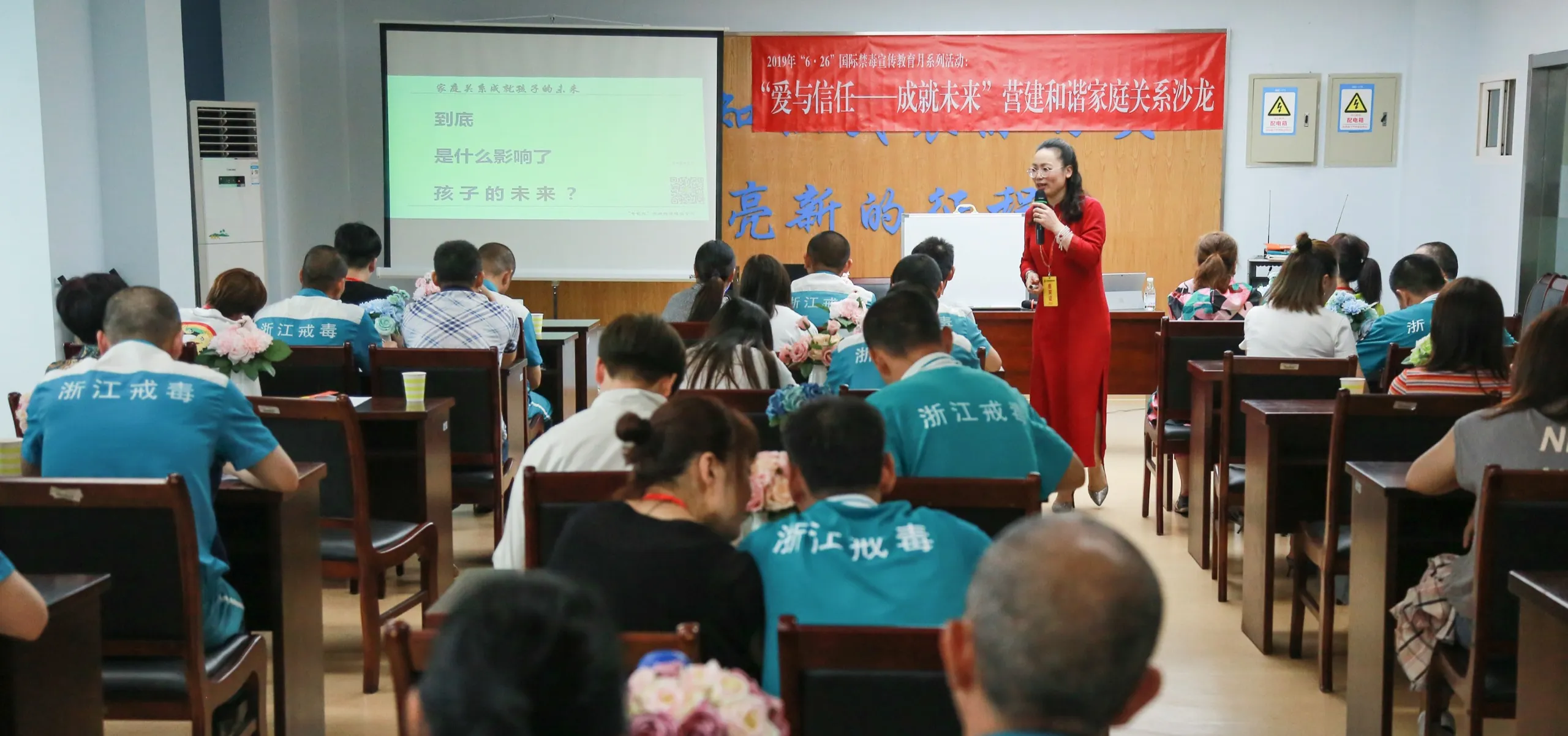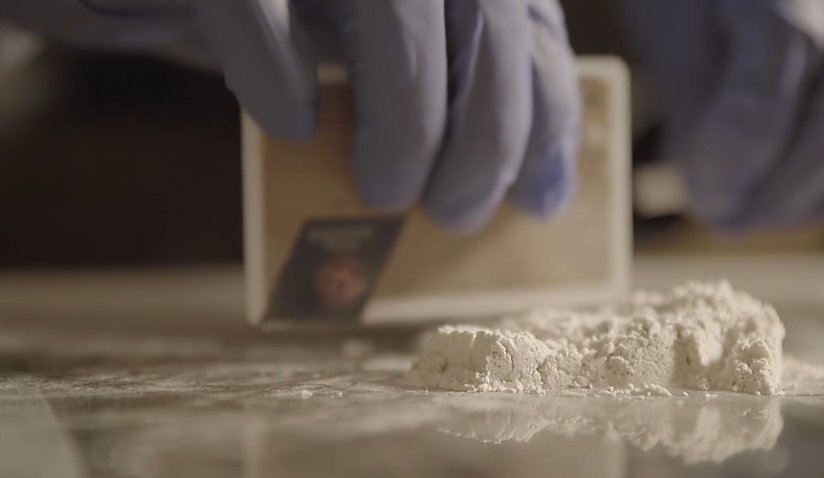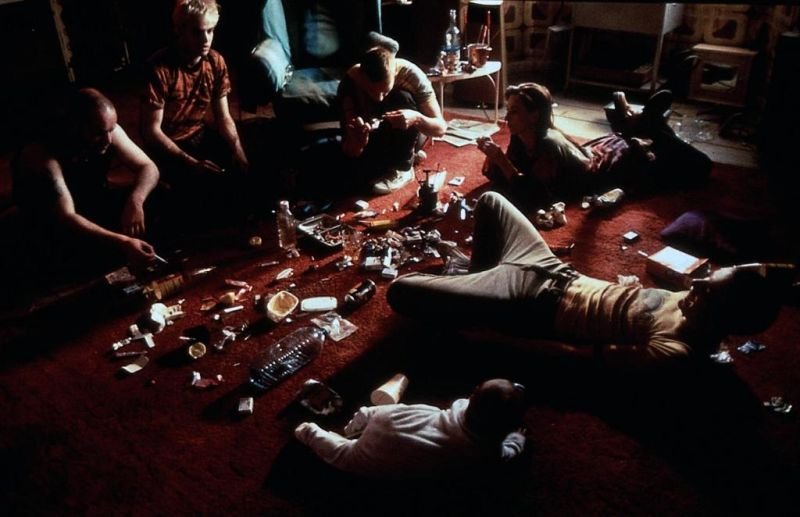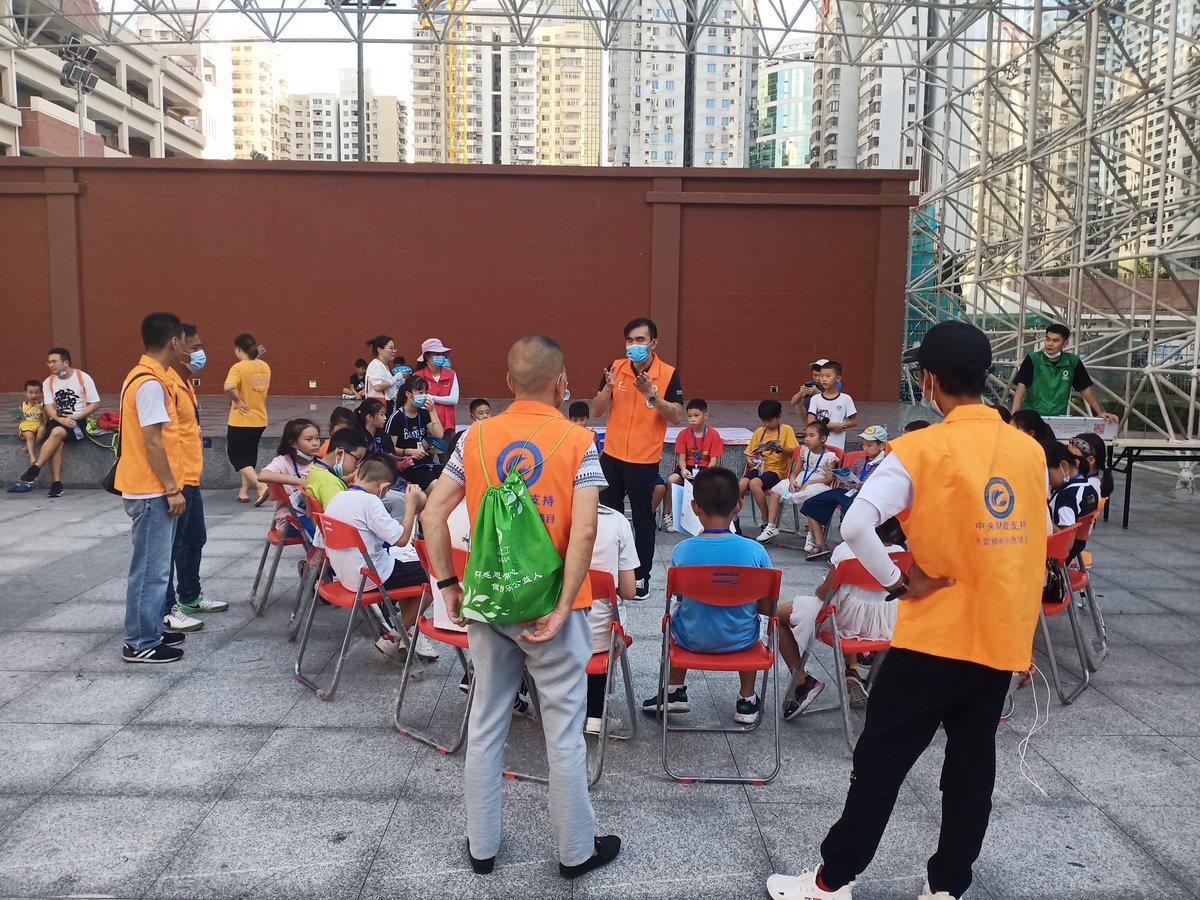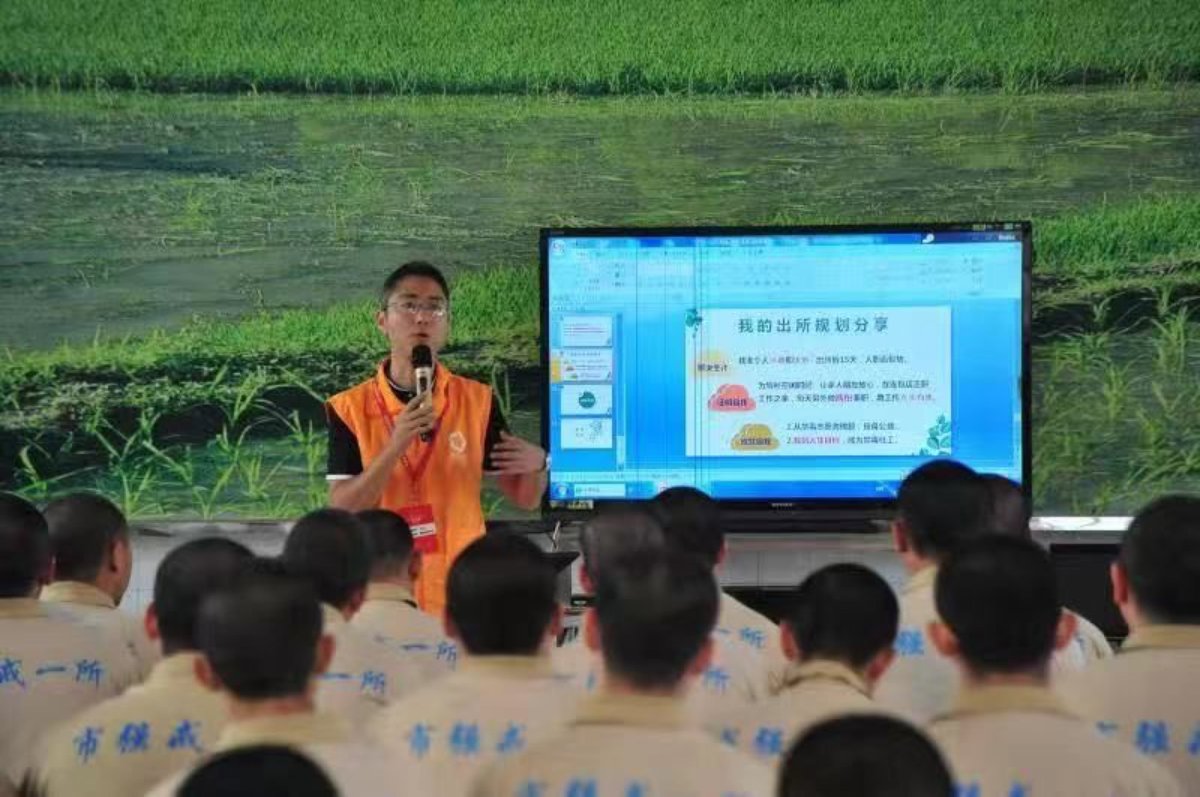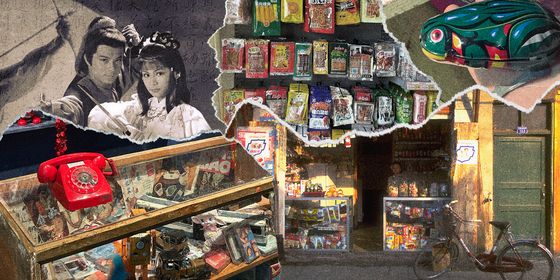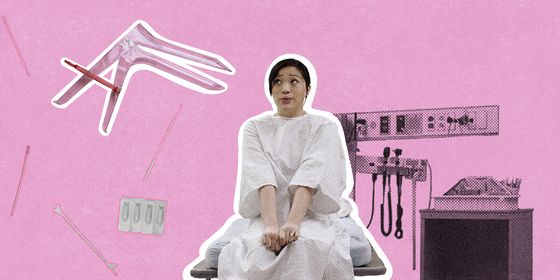Former drug users in China go through immense struggles to rehabilitate and re-enter society
China’s mass media often describes drug users as “emaciated,” “depressed,” or “ruined,” and a cautionary tale for addiction: “One day of drug use, ten years of rehab, a lifetime of cravings,” is a common saying in the rehab field.
Drug addiction has long been associated with disease and crime in the country’s public imagination. Many think of people who use drugs as being irredeemably evil, and deserve to be abandoned by society.
But some drug users are engaging in herculean struggles to overcome addiction. But despite the enormous challenge of staying away from drugs, an even bigger obstacle is regaining society’s trust.
-1-
“Big Brother”
My name is Shi Zhu and I’m 44 years old. I’m currently a substance abuse social worker in Shenzhen, but before that, I had another identity: I was addicted to drugs for 18 years.
I was born in a small city, the youngest son in my family. I never faced much hardship growing up. Starting in the early 90s, my parents took unpaid leave to open restaurants and teahouses, so my family would be considered well-off for our area.
During the 90s, a new fashion district sprang up in our city. Some young people a few years older than me worked in the clothing business there, which is how I came to know this one “Big Brother.” When I had nothing better to do, I would help out in his store.
I turned 18 in 1996. One day, I didn’t feel like going home after school, and decided to go looking for Big Brother. When I got to his store there was nobody there, so I went to see if he was at home. I knocked for a long time before he opened the door. When he saw it was me, he quickly pulled me inside, straight to the innermost bedroom.
When I entered the bedroom, I saw a huge mattress with four or five people sprawled across it, men and women, with identical expressions on their faces. It was this look of comfort, of enjoyment, like after you’ve had a few drinks. I also saw lighters, cigarettes, and a couple pieces of silver foil on the coffee table, with some white powder on top.
Big Brother asked me, “Do you know what that is?”
I shook my head.
He launched into a description, saying that the stuff was called heroin, something that only the rich could afford to play around with. A gram of heroin cost more than its weight in gold; as soon as you “ate” it, you’d feel like an immortal. He also said that if we weren’t bros, he wouldn’t even have let me inside that day.
Because I didn’t know how to “eat” the stuff, Big Brother decided to “feed” me. He brought over a lighter, put some heroin on a piece of foil, and then lit the lighter beneath it. Bluish smoke immediately appeared over the foil, and he told me to inhale it.
The first breath was bitter, and I choked. The people next to me on the bed started laughing. I didn’t feel that this substance had any magic to it, and I told Big Brother I didn’t need any more, thanks. But he said it was because I hadn’t really experienced it, so he decided to give me a few more hits.
At the time I had no clue what sort of impact this stuff would have on my future. I carelessly took a few more breaths. Gradually, I felt my limbs grow weak. As I lay on that sofa with my eyes closed, I felt like I was lying on a boat—a kind of comfortable feeling I’d never experienced before.
But after taking the heroin, I threw up so much I couldn’t stand, so Big Brother called a taxi to take me home.
In the two or three days after that, whenever I smoked a cigarette, I would go right back to the state I was in with the heroin. After a few days, my body recovered, so I went back to that Big Brother’s house again.
-2-
Detention
After taking heroin with Big Brother a few more times, I found that I had become dependent on this white powder. If I went 24 hours without it, I’d start feeling hot and cold, shivering, and feeling like there were thousands of ants crawling in my bones.
As my addiction deepened, I left more and more of my former life behind. My grades plummeted, I drifted away from my old friends, and I started stealing money from my family in order to buy drugs.
One day, I was doing heroin at Big Brother’s place as usual, when all of a sudden there was a loud bang from outside. A group of police officers rushed in and pinned us to the ground.
This was my first drug arrest.
Back then, China didn’t have any special rehab centers, so people who used drugs would be sent to detention centers. Inside, it was a sea of shaven heads, and the inmates all had big dragon and tiger tattoos. The worst part was that, as a “new recruit,” I would have to pass three “challenges.” This was part of routine hazing that detention center “veterans” would use to bully the new “recruits.”
For the first test, each veteran would wrap his fist in a towel and hit me three times in the back. For the second, each veteran would hit me three times with his elbow. The third was the hardest—the veterans would hold a bed just far enough off the ground to form a narrow gap, and I would have to crawl through this gap. If I went too slowly, they would kick or punch me. The faster I crawled, the less I suffered.
It was only after passing these three challenges that they counted me as one of their own. I was going through withdrawal, but the horrors of the detention center were enough to overwhelm my bodily reactions.
I swore to myself that after my mandatory three-month rehab, I would never go back.
-3-
Relapse
After I got out of detention, my mother got me a leave of absence from school in the hope that I could stay home and turn over a new leaf. During that initial period, my parents hardly let me out of their sight. If they were busy, they had a nanny watch me out of fear that I would go back to the drugs.
After a month or so, seeing that I was doing well, my parents let down their guard. But who would have thought? As if led by a supernatural force, I soon found myself back at Big Brother’s place.
The second time I was arrested, my rehab period increased from three to six months. Both times, my sentence was mailed to my parents’ workplace, making it so that people would gossip about them whenever they left the house. But they still believed I could change, and they didn’t give up on me.
One time when my family visited me in rehab, I suddenly saw that my mother’s hair had gone white. I felt a tremendous sense of guilt. I didn’t want my family to worry anymore, so I resolved to quit.
But again, I failed.
I actually ended up with six stints in rehab between 1996 and 2014. Out of those 18 years of my life, 10 years and 6 months were spent in rehab centers.
I’ve tried many different ways to quit. I’ve gone to the hospital. I’ve tried doing it purely through willpower at home, without medication for the withdrawals. My mother has even moved with me to try to get me away from my old acquaintances. But it never lasted more than two months.
The hardest part about quitting is the psychological dependence on the drugs, which basically lasts a lifetime. When I had just started using, my so-called seniors would tell me that as soon as I started, I would never be able to quit. This misinformation dogged my heels for a long time.
For people addicted to drugs, the pleasure of using is greater than anything reality can provide. This pleasure is imprinted in the brain, so that even after getting out of rehab, as soon as we encounter scenes or objects related to our drug use, those dusty memories are reactivated, and we might use again.
Every time I was in a rehab center, I would feel regret and resolve to quit. Every time I got out, I would do better for a few months, but whenever I saw my former friends who used drugs, any expression or unconscious gesture could trigger my old cravings.
All the laws, all the humiliation and suffering in rehab, all of that would get shoved to the back of my mind. My only thought would be how to get some money so I could buy some product to scratch that itch.
-4-
Addiction social work
In March 2014, my urine test came up positive during a routine check on the street, so I was arrested and sent to rehab for the sixth time.
I went in resigned to my fate: At worst, I’d be locked up for two years, and then after I got out and recovered, I could go right back to the drugs.
The correctional officer in the rehab center seemed to sense this attitude from our conversation, so he tried a new tack with me.
China had just launched a new drug rehabilitation policy called “831.” This was a community-based addiction recovery program to support people addicted to drugs to quit and re-enter society, and it allowed addiction social workers to be stationed in rehab centers to help people quit.
The officer assigned me a social worker to help me. The first time I met her, I was unimpressed. She was a young woman who looked like she’d just gotten out of school. I could sense she felt uncomfortable when we talked alone, so in our first conversation, we just went through some routine questions.
I thought: In all these years, I’ve never been able to help myself—what made this girl think she could help me?
But our second meeting changed my mind.
This time around, my family hadn’t found out yet that I was back in rehab. By then, my parents were already in their 70s, and I was concerned about them. Without meaning to, I had shared my worries about them in my first conversation with the social worker. When she came back the next week, she surprised me with news from home and gave me a message from my mother.
My mother told her that she hoped I could quit for good this time around, and that my family had never given up on me.
I never thought that a social worker could do these things for me. After being in and out of rehab so many times over the years, I was familiar with the strictness of these places. Usually, we had little contact with anyone aside from the officers in the facility. I was moved that this social worker took my troubles to heart after a single conversation and contacted my family on her own time. I felt a sense of being respected, of being treated as an equal.
-5-
A new life
With the help of the social worker, I started to regain my self-confidence and my determination to quit. More importantly, it was also through her educational efforts that I became aware of the harmful effects of drugs on the body from a scientific perspective. This was a turning point for me.
I started making an action plan for myself: reading, writing, and active participation in the rehab center’s activities. My good behavior earned me a six-month reduction to my stay. On September 10, 2015, I walked out of rehab for the last time.
After getting out, I found work as a pastry chef, along with two other jobs to keep me busy.
That same September, Shenzhen was hosting the China Charity Fair, where government representatives can meet with charities. My social worker invited me to participate in the event. To tell you the truth, I didn’t even know what a charity fair was, nor did I understand anything about public welfare; but because I happened to be on vacation, I went.
That day, my social worker’s organization put on a choral concert called “Nirvana and Rebirth,” which I also took part in. It was very well received, and I was so pumped by the atmosphere that I couldn’t fall asleep until 3 or 4 that night.
The next day, my social worker told me, “The people who performed with you yesterday—aside from our social workers in green vests—the rest have all experienced what you’ve been through.”
I was shocked. I used to think I could pick out people who had used drugs from the crowd, but that day I had no idea that the people who sang and played guitar with me had histories of drug use.
These people radiated a sense of confidence, vitality, and purpose. An idea started forming in my mind: Could people like us come together as a volunteer support group? On one hand, we could encourage each other to stay on track; on the other, we could learn from each other and watch ourselves grow.
In 2015, we started a peer counseling team at the Shenzhen Wenxin Social Services Center called Xin Qidian, or “Fresh Start.” This was also Shenzhen’s first drug resistance volunteer group to be made up of people who had once been addicted themselves.
As drug resistance volunteers, we hold anti-drug workshops in neighborhoods, schools, and rehab centers, in hopes of helping the public understand the dangers of drug use. Our addiction peer counseling program has also effectively lowered addiction relapse rates and helped people in recovery reintegrate into society.
-6-
A new member
A volunteer in the fourth cohort of Fresh Start had once stayed in the same rehab facility as me. That was in 2014—he had been sent to rehab for meth, while I went in some time after him. When he learned that this was my sixth time in rehab, he even laughed at me, saying I’d never be able to quit.
In August 2015, he was released; I got out that September.
At the end of 2015, I was invited as a drug resistance volunteer to tell my story at the Shenzhen Nanshan Rehab Center, where I ran into him again. But this time, our roles were different.
He later told me that he had complicated feelings when he saw me up there on that stage. He had trouble sleeping that night. He kept thinking, “Shi Zhu went through rehab six times and still managed to quit in the end, so why can’t I?”
By law, he was eligible to transfer to a judicial system rehab center after a month in the public security rehab center. [Editor’s note: The police and the judicial system run separate rehab clinics, the former treating recent arrests, the latter with reintegrating them back into society.] In judicial rehab, he would actually have been able to reduce his stay by three to four months through a labor program, but he passed up this chance.
In order to quit once and for all, he decided to stay the full 24 months in the public security system.
He came to me on his first day out of rehab, wanting to join our team of volunteers. Through a series of training regimens, he eventually became a member of the group. He now runs his own company while actively volunteering in our public service efforts.
Starting in 2015, Fresh Start has accepted over 50 people in recovery into our peer counseling program. We support each other while maintaining accountability through randomized urine tests.
As I deepened my commitment to volunteering, I hoped to gain the skills needed to work in the recovery field in a professional capacity. In June 2018, I passed the national assistant social worker exam, becoming the first social worker in Guangdong province with a history of addiction.
After becoming a social worker, the challenges I faced became more complex.
-7-
Brother, I’m sorry
Before the pandemic, I would go to the rehab center every month to talk with the people in recovery there. I also offered classes in career planning and cultivating helpful mindsets.
During that time I met a client from Guizhou, who was also in rehab for heroin. He had a very cheerful personality. With our help, he regained his confidence in his ability to quit. He threw himself into recovery, and was looking forward to getting out and starting a new life.
After his release, he would call me with updates almost every day. He had returned to Guizhou, found a new job, and had repaired his relationship with his family. It seemed like everything was moving in the right direction.
One day, I saw that it had been several days since he reached out. I gave him a call, but nobody answered. He also didn’t respond to my WeChat messages. By then I had my suspicions, but without any definitive news, I kept up my wishful thinking.
Then, out of the blue, my phone rang one morning at 3 or 4 a.m. It was a WeChat video call.
I picked up the call and saw him come up on the other end.
He looked like an entirely different person. He left rehab looking white and plump, but now, just a couple months later, he was as skinny as a match.
Before I could say anything, he actually took out a syringe and started shooting up. He said, “Brother, I’m sorry. I don’t think I’ll ever be able to quit.”
Then he gave himself another shot.
Watching him, my mind went blank. I couldn’t get any words out. Maybe noticing my shock, he hurriedly turned off his video and sent me a one-line text message: “Social Worker Shi, I’m sorry I let you down.”
After that, no matter how often I tried to get in touch, he wouldn’t respond. A week later, my calls stopped going through. When this happened, it almost always meant you’d been arrested.
This event shook me to the core. I went back to my former social worker to seek her advice.
She told me that social workers are people, not gods, so it’s not possible to help 100 percent of your clients achieve recovery. As social workers, we can do everything in our power to provide resources and support, but it’s still up to our clients to make the change.
Drugs can be unimaginably addictive. Most people in recovery will spend a lifetime resisting their thrall. High relapse rates are a problem worldwide: The journal Justice of China reports that even in countries like the US, with relatively advanced treatment methods, the relapse rate is still as high as 90 percent.
A variety of factors may contribute to relapse, with environment widely acknowledged as one of the most important. Many people in recovery have a hard time reentering society. Facing rejection from public opinion, policies, and institutions, many of them see no alternative but to return to their old circle of acquaintances.
-8-
We don’t want people who’ve used drugs
According to the mainstream perspective, drug use is a permanent stain on your life. This is something that I’m very familiar with. At one point, after my fifth time in rehab, I had difficulty getting hired.
I was applying for a food delivery job. I’d already passed the interview, and as long as I did my medical exam, I could start work the next day. But that night I got a call. They said that I was unsuited for the position and told me not to come in.
I was surprised, so I asked why. The company said it was because my record indicated that I had been involved with drugs, so they couldn’t hire me.
I can understand a company not wanting to risk hiring people with a history of drug use. But over the years, I’ve combed their websites and documents for an official policy against hiring people who have used drugs, but I never found anything.
Back then I was young and energetic, and didn’t think much of it. But once I became an addiction peer-counselor and social worker, once I started connecting clients to employment resources and seeing them hitting a wall wherever they went, I started feeling powerless. I also felt the full force of society’s intolerance toward this group of people.
The truth is that in many places, we are outcasts.
People in recovery have made mistakes, but they are not monsters, nor are they beyond redemption. Over the past few years, apart from helping our clients grow as individuals, we have also tried various ways to challenge the stereotypes.
Actually, rather than using labels like “drug addict” or “recovering addict,” I like to call people like me “the reborn.” To be reborn is to come back from death and start over again; this is precisely what we have experienced.
For people in recovery, the real challenge might lie not in quitting, but in reentering society. So I hope that in the future, I can help more people like me break out of the darkness and be reborn.
According to China’s drug and rehabilitation laws, aside from certain fields like drug manufacturing, taxis and ride-sharing services, and nursery schools, it is illegal to discriminate against people who have used drugs when it comes to hiring. It is also illegal to discriminate against them in education and access to social security.
Images from Douban and Shi Zhu
___
This story is published as part of TWOC’s collaboration with Story FM, a renowned storytelling podcast in China. It has been translated from Chinese by TWOC and edited for clarity. The original can be listened to on Story FM’s channel on Himalaya and Apple Podcasts (in Chinese only).





